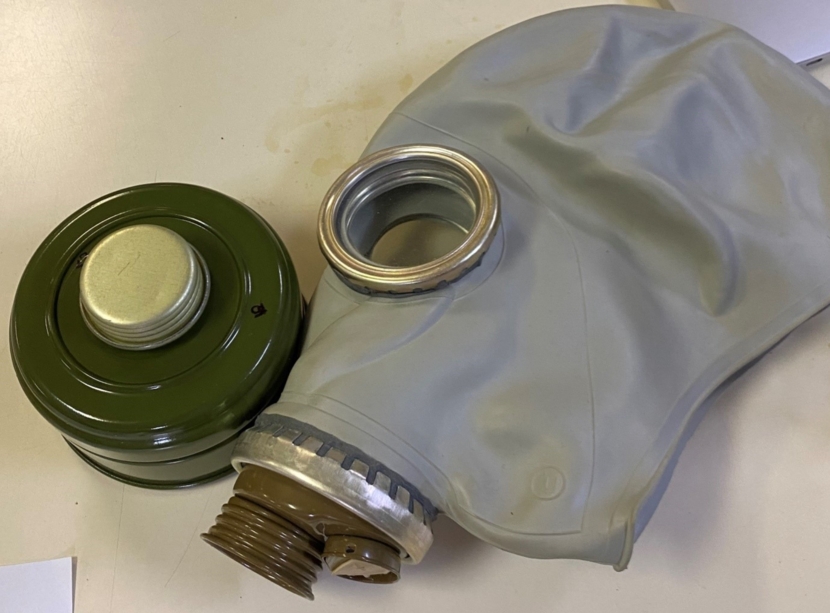The Human Environment and Transport Inspectorate (Inspectie Leefomgeving en Transport, ILT) recently accidentally found gas masks with asbestos-containing filters on board a bulk carrier during a regular port-state inspection. The crew was using these masks as protective equipment while checking phosphine levels in the hold.
As the inspector suspected they were Soviet asbestos-containing filter canisters, a sample was taken with the captain’s permission. Laboratory tests showed that they were indeed asbestos-containing filters.
Also read: Dutch ILT drones find lashing violations on container ships
Internet trade
On internet platforms such as marketplaces and vintage markets, the gas masks including the filter cans remain a popular product among consumers. Back in 2021, the inspectorate warned consumers about internet ads offering (army) cases containing these gas masks and filter canisters for sale.
The ILT now sees that these gas masks with asbestos-containing filter canisters are being used in maritime shipping. In the past 1.5 years, there have been three instances where shipping inspectors on board international ships accidentally came across these asbestos-containing filter canisters.
Serious health risks
As exposure to asbestos fibres poses serious health risks, the ILT is engaging with industry associations, the European Maritime Safety Agency (EMSA) and the International Maritime Organisation (IMO) to highlight the dangers.
Asbestos is a natural mineral composed of small fibres. It is highly wear-resistant and resistant to moisture and chemicals. It is also insulating (heat and electricity), heat-resistant and fire-resistant. That is why asbestos was widely used in construction until 1994, but also in objects such as consumer goods.
Inhalation of asbestos fibres can cause lung cancer and peritoneum (mesothelioma) and asbestosis. The ILT recommends that these masks with filter canisters should be disposed of immediately, airtight packed, in a double layer of plastic, as asbestos-containing material.
Ban
Asbestos has been banned since 1 July 1993 and companies are no longer allowed to use asbestos because of the risks to public health. They are also no longer allowed to sell, import, give away, reuse or process asbestos or products containing asbestos. In the European Union, an asbestos ban has been in place since 2005. In international shipping, materials containing asbestos have been banned since 2002.
The ILT’s supervision focuses on ensuring that parties remove and dispose of asbestos – used in the past in industry, ships, trains, roads, et cetera – in a safe way and do not reuse it or pass it on to others. To prevent new products containing asbestos from entering the market, the ILT also monitors the import ban. Uncontrolled imports of untested products from countries where there is no total ban on asbestos pose a health risk to European consumers.
Picture by ILT.
Also read: Dutch satellite to monitor emissions from individual seagoing vessels








